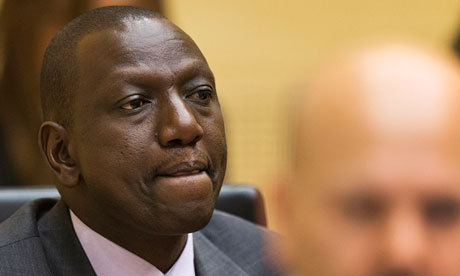By Kathryn Maureen Ryan
Impunity Watch, Middle East
WASHINGTON D.C., United States of America — A resolution has been introduced to the United States House of Representatives calling for the immediate establishment of a Syrian War Crimes Tribunal. The resolution was introduced on 9 September 2013 and referred to the House Committee on Foreign Affairs, where it will be considered before moving to the House or Senate for a vote. The resolution has bipartisan support and has been cosponsored by eight Republican and two Democratic members of Congress.

The Resolution, H.CON.RES.51, calls upon President Barack Obama to use the “voice and vote of the United States” at the United Nations to promote the immediate establishment of an ad hoc court to prosecute the perpetrators of serious crime committed during the civil war in Syria, including Bashar Al-Assad’s use of chemical weapons against his own people. The chemical attack killed more than 1,000 people in Ghouta on 21 August 2013, including more than 400 children.
The Chairman of the House Foreign Affairs Committee’s human rights panel introduced the resolution on Monday. Smith wrote in an editorial for the Washington Post that “there is a non-lethal way to help ensure that Bashar al-Assad and other perpetrators of atrocities in Syria are held to account—not someday far in the future—but beginning now.” Smith believes a war crimes tribunal can be an effective alternative to the use of force and can offer justice to the Syrian people without putting the lives of innocent Syrian civilians at risk.
Congressman Smith argued that country-specific ad hoc courts may offer a more effective means of holding those responsible for atrocities accountable; especially in a case like Syria because Syria is not a party to the Rome Statute or a member of the International Criminal Court—which has jurisdiction over genocide, crimes against humanity and war crimes—which presents a challenge for prosecuted the perpetrators of atrocities during ongoing civil war in Syria. The resolution acknowledges that ad hoc tribunals established by the international community in the past, including the International Criminal Tribunal for the former Yugoslavia, the International Criminal Tribunal for Rwanda, and the Special Court for Sierra Leone, “have successfully investigated and prosecuted war crimes, crimes against humanity, and genocide.”
Congressman Jared Huffman of California, a Democrat, is cosponsoring the resolution. Huffman said, “I don’t think anyone should get away with killing children with chemical weapons.” He believes the establishment of an ad hoc tribunal can offer the possibility of justice to the Syrian people without the use of military force.
Virginia Republican Congressman Scott Rigell, who led the calls for President Obama to seek congressional authorization before using force in Syria to punish Syrian Bashar al-Assad for the using chemical weapons against innocent civilians, voiced his support for the resolution. “Assad should spend every day for the rest of his life paying for the crimes he has committed against humanity,” Rigell said.
For more information please see:
The Washington Post – Establish a Syrian War Crimes Tribunal – 9 August 2013
The Press Democrat – North Coast Congressmen Pleased Vote Delayed On Syria Strike – 10 September 2013
NJ.com – N.J. Congressman’s Bill Creating Syrian War Crimes Tribunals Gains Bipartisan Support – 11 September 2013
Richmond Times-Dispatch – Rigell Backs War Crimes Tribunal For Syria – 11 September 2013
[scribd id=167497637 key=key-1pd63fgqrwtx7vjpnbpw mode=scroll]

